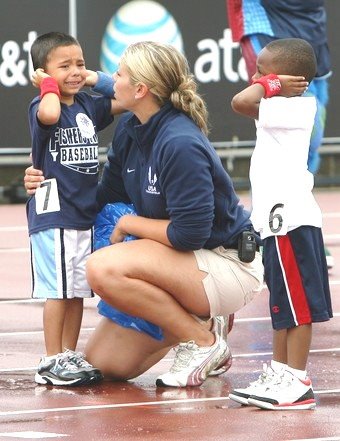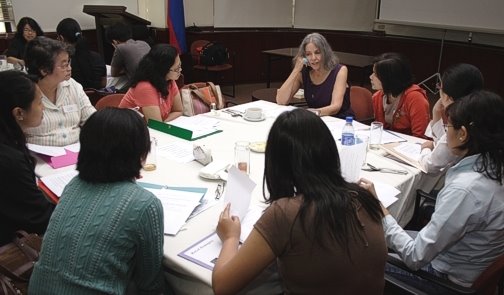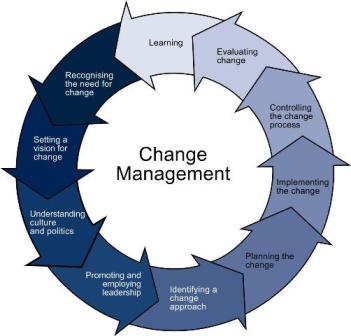
M.M.M.Ahmed, Editor,Proactive Personality Developer
Present Simple Tense- Active Voice- Pronoun-I
I write a letter.
Do I write a letter?
I don't write a letter.
Present Simple Tense- Passive Voice-Pronoun-I
A letter is written by me.
Is a letter written by me?
A letter is not written by me.
Present Continuous Tense- Active Voice - Pronoun-I
- I am writing a letter.
- Am I writing a letter?
- I am not writing a letter.
Present continuous Tense-Passive Voice- Pronoun-I
- A letter is being written by me.
- Is a letter being written by me?
- A letter is not being written by me.
Present Perfect Tense-Active Voice- Pronoun-I
- I have written a letter.
- Have I written a letter?
- I have not written a letter.
Present Perfect Tense- Passive Voice- Pronoun- I
- A letter has been written by me.
- Has a letter been written by me?
- A letter has not been written by me.
Present Perfect Continuous Tense-Active Voice
- I have been writing a letter.
- Have I been writing a letter?
- I have not been writing a letter.
Past Simple Tense- Active Voice- Pronoun- I
- I wrote a letter.
- Did I write a letter?
- I did not write a letter.
Past Simple Tense- Passive Voice- Pronoun- I
- A letter was written by me.
- Was a letter written by me?
- A letter was not written by me.
Past Continuous Tense- Active Voice-Pronoun-I
- I was writing a letter.
- Was I writing a letter?
- I was not writing a letter.
Past Continuous Tense- Passive Voice-Pronoun-I
- A letter was being written by me.
- Was a letter being written by me?
- A letter was not being written by me.
Past Perfect Tense- Active Voice- Pronoun-I
- I had written a letter.
- Had I written a letter?
- I had not written a letter.
Past Perfect Tense- Passive Voice- Pronoun-I
- A letter had been written by me.
- Had a letter been written by me?
- A letter had not been written by me.
Past Perfect Continuous- Active Voice- Pronoun
I had been writing a letter.
Had I been writing a letter?
I had not been writing a letter.
Future Simple Tense- Active Voice- Pronoun- I
- I will write a letter.
- Will I write a letter?
- I will not write a letter.
Future Simple Tense- Passive Voice- Pronoun-I
- A letter will be written by me.
- Will a letter be written by me?
- A letter will not be written by me?
Future Continuous Tense- Active Voice- Pronoun-I
- I will be writing a letter.
- Will I be writing a letter?
- I will not be writing a letter.
Future Perfect Tense- Active Voice- Pronoun-I
I will have written a letter.
I will have not written a letter.
Future Perfect Tense- Passive Voice- Pronoun-I
- A letter will have been written by me.
- A letter have writing a letter.
Future Perfect Continuous Tense- Active Voice
- I will have been writing a letter.
- I will not have been writing a letter
...................................................................................
Present Simple Tense- Active Voice- Pronoun-You
You write a letter.
Do you write a letter?
You don't write a letter.
Present Simple Tense- Passive Voice- Pronoun- You
A letter is written by you.
Is a letter written by you?
A letter is not written by you.
Present Continuous Tense- Active Voice- Pronoun-You
- You are writing a letter.
- Are you writing a letter?
- You are not writing a letter.
Present Continuous Tense- Passive Voice - Pronoun-You
A letter is being written by you.
- Is a letter being written by you?
- A letter is not being written by you.
Present Perfect Tense- Active Voice- Pronoun-You
- You have written a letter.
- Have you written a letter?
- You have not written a letter.
Present Perfect Tense- Passive Voice -Pronoun-You
- A letter has been written by you.
- Has a letter written by you?
- A letter had not been written by you.
Present Perfect Continuous Tense- Active Voice
- You have been writing a letter.
- Have you been writing a letter?
- You have not been writing a letter.
Past Simple Tense-Active Voice- Pronoun-You
- You wrote a letter.
- Did you write a letter?
- You did not write a letter.
Past Simple Tense- Passive Voice- Pronoun-You
- A letter was written by you.
- Was a letter written by you?
- A letter was not written by you.
Past continuous Tense- Active Voice- Pronoun-You
You were writing a letter.
Were you writing a letter?
You were not writing a letter.
Past Continuous Tense- Passive Voice- Pronoun-You
- A letter was being written by you.
- Was a letter being written by you?
- A letter was not Being Written by You.
Past Perfect Tense-Active Voice- Pronoun-You
You had written a letter.
Had you written a letter?
You had not written a letter.
Past Perfect Tense- Active Voice- Pronoun-You
- A letter had been written by me.
- Had a letter been written by me?
- A letter had not been written by me.
Past Perfect Continuous Tense- Active Voice
You had been writing a letter.
- Had You been writing a letter?
- You had not been writing a letter.
Future Simple Tense-Active Voice- Pronoun-You
You will be write a letter.
- Will a letter be written by me?
- A letter will not be written by me.
Future Simple Tense- Passive Voice- Pronoun-You
- A letter will be written by you.
- Will a letter be written by you?
- A letter will not be written by you.
Future Continuous Tense- Active Voice- Pronoun-You
You will be writing a letter.
- Will you be writing a letter?
- You will not be writing a letter.
Future Perfect Tense- Active Voice- Pronoun-You
- You will have written a letter.
- You will have not written a letter
Future Perfect Tense- Passive Voice-Pronoun-You
A letter will have been written by you.
- A letter will not have been written by you.
Future Perfect Continuous Tense-Action Voice-
- You will have been writing a letter.
- You will not have been writing a letter.
Present Simple Tense-Active Voice-Pronoun-We
We write a letter.
Do we write a letter?
We don't write a letter.
Present Simple Tense-Passive Voice-Pronoun-We
A letter is written by us.
Is a letter written by us?
A letter is not written by us.
Present Continuous Tense-Active Voice-Pronoun-We
We are writing a letter.
Are we writing a letter?
We are not writing a letter.
Present Continuous Tense-Passive Voice-Pronoun-We
A letter is being written by us.
Is a letter being written by us?
A letter is not being written by us.
Present Perfect Tense- Active Voice-Pronoun-We
- We have written a letter.
- Have we written a letter?
- We have not written a letter.
Present Perfect Tense-Passive Voice -Pronoun-We
- A letter has been written by us.
- Has a letter been written by us?
- A letter has not been written by us.
Present Perfect Continuous Tense- Active Voice-Pronoun-We
- We have been writing a letter.
- Have we been writing a letter?
- We have not been writing a letter.
Past Simple Tense-Active Voice-Pronoun-We
We wrote a letter.
Did we write a letter?
We did not write a letter.
Past Simple Tense-Passive Voice-Pronoun-We
- A letter was written by us.
- Was a letter written by us?
- A letter was not written by us.
Past Continuous Tense-Active Voice-Pronoun-We
We were writing a letter.
Were we writing a letter?
We were not writing a letter.
Past Continuous Tense-Passive Voice-Pronoun-We
- A letter was being written by us.
- Was a letter being written by us?
- A letter was not being written by us.
Past Perfect Tense-Active Voice-Pronoun-We
We had written a letter.
Had we written a letter?
We had not written a letter.
Past Perfect Tense-Passive Voice-Pronoun-We
- A letter had been written by us.
- Had a letter been written by us?
- A letter had not been written by us.
Past Perfect Continuous Tense-Active Voice-We
We had been writing a letter.
Had we been writing a letter?
We had not been writing a letter.
Future Simple Tense-Active Voice-Pronoun-We
- We will write a letter
- Will we write a letter?
- We will not write a letter.
Future Continuous Tense-Passive Voice-Pronoun-We
- A letter will be written by us.
- Will a letter be written by us?
- A letter will not be written by us.
Future Perfect Tense-Active Voice-Pronoun-We
We will have written a letter.
We will have not written a letter.
Future Perfect Tense-Passive Voice-Pronoun-We
- A letter will have been written by us.
- A letter will not have been written by us.
Future Perfect Continuous Tense-Active Voice
We will have been writing a letter.
We will not have been writing a letter
.....................................................................................
Present Simple Tense-Active Voice-Pronoun-They
They write a letter.
Do they write a letter?
They don't write a letter.
Present Simple Tense-Passive Voice-Pronoun-They
- A letter is written by them.
- Is a letter written by them?
- A letter is not written by them
Present Continuous Tense-Active Voice-Pronoun-They
They are writing a letter.
Are they writing a letter?
They are not writing a letter.
Present Continuous Tense-Passive Voice-Pronoun-They
- A letter is being written by them
- Is a letter being written by them?
- A letter is not being written by them.
Present Perfect Tense-Active Voice-Pronoun-They
They have written a letter.
Have they written a letter?
They have not written a letter.
Present Perfect Tense-Passive Voice-Pronoun-They
- A letter has been written by them.
- Has a letter been written by them?
- A letter has not been written by them.
Present Perfect Continous Tense-Active Voice
They have been writing a letter.
Have they been writing a letter?
They have not been writing a letter.
Past Simple Tense-Active Voice-Pronoun-They
- They wrote a letter.
- Did they write a letter?
- They did not write a letter.
Past Simple Tense-Passive Voice-Pronoun-They
A letter was written by them.
Was a letter written by them?
A letter was not written by them.
Past Continous Tense-Active Voice-Pronoun-They
- They were writing a letter.
- Were they writing a letter?
- They were not writing a letter.
Past Continous Tense-Passive Voice-Pronoun-They
A letter was being written by them.
Was a letter being written by them?
A letter was not being written by them.
Past Perfect Tense-Active Voice-Pronoun-They
- They had written a letter.
- Had they written a letter?
- They had not written a letter.
Past Perfect Tense-Passive Voice-Pronoun-They
A letter had been written by them.
Had a letter been written by them?
A letter had not been written by them
Past Perfect Continous Tense-Active Voice
They had been writing a letter.
Had they been writing a letter?
They had not been writing a letter.
Future Simple Tense-Active Voice-Pronoun-They
- They will write a letter.
- Will they write a letter?
- They will not write a letter.
Future Simple Tense-Passive Voice-Pronoun-They
A letter will be written by them.
Will a letter be written by them?
A letter will not be written by them.
Future Continous Tense-Active Voice-Pronoun-They
- They will be writing a letter.
- Will they be writing a letter?
- They will not be writing a letter.
Future Perfect Tense-Active Voice-Pronoun-They
They will have written a letter.
Theywill have not written a letter.
Future Perfect Tense-Passive Voice-Pronoun-They
- A letter will have been written by them.
- A letter will not have been written by them.
Future Perfect Continous Tense-Active Voice
They will have been writing a letter.
They will not have been writing a letter.
.....................................................................................
Present SimpleTenses-Active Voice- Pronoun-He
He writes a letter.
Does he write a letter?
He does not write a letter.
Present Simple Tense-Passive Voice-Pronoun-He
- A letter is written by him
- Is a letter written by him?
- A letter is not written by him.
Present Continous Tense-Active Voice-Pronoun-He
He is writing a letter.
Is he writing a letter?
He is not writing a letter.
Present Continous Tense-Passive Voice-Pronoun-He
- A letter is being written by him.
- Is a letter being written by him?
- A letter is not being written by him.
Present Perfect Tense-Active Voice-Pronoun-He
He has written a letter.
Has he written a letter?
He has not written a letter.
Present Perfect Tense-Passive Voice-Pronoun-He
- A letter has been written by him.
- Has a letter been written by him?
- A letter has not been written by him.
Present Perfect Continuous Tense-Active Voice
He has been writing a letter.
Has he been writing a letter?
He has not been writing a letter.
Past Simple Tense-Active Voice-Prronoun-He
- I wrote a letter.
- Did he write a letter?
- He did not write a letter.
Past Simple Tense-Passive Voice-Pronoun-He
A letter was written by him.
Was a letter written by him?
A letter was not written by him.
Past Continuous Tense-Action Voice-Pronoun-He
He was writing a letter.
Was He writing a letter?
He was not writing a letter.
Past Continous Tense-PassiveVoice-Pronoun-He
A letter was being written by him.
Was a letter being written by him?
A letter was not being written bu him.
Past Perfect Tense-Active Voice-Pronoun-He
He had written a letter.
Had he written a letter?
He had not written a letter.
Past Perfect Tense-PassiveVoice-Pronoun-He
A letter had been written by him.
Had a letter been written by him?
A letter had not been written by him.
Past Perfect Continous Tense-Active Voice-Pronoun-He
He had been writing a letter.
Had he been writing a letter?
He had not been writing a letter.
Future Simple Tense-Active Voice-Pronoun-He
He will write a letter.
Will he write a letter?
He will not write a letter
Future Simple Tense-Passive Voice-Pronoun-He
A letter will be written by him.
Will a letter be written by him?
A letter will not be written by him.
Future Continous Tense-Active Voice-Pronoun-He
- He will be writing a letter.
- Will he be writing a letter?
- He will not be writing a letter
Future Perfect Tense-Active Voice-Pronoun-He
He will have written a letter.
He will have not written a letter.
Future Perfect Tense-Passive Voice-Pronoun-He
- A letter will have been written by him.
- A letter will not have been written by him.
Future Perfect Continous Tense-Active Voice
He will have been writing a letter.
He will not have been writing a letter.
...........................................................................................
Present Simple Tense-Active Voice-Pronoun-She
She writes a letter.
Does she write a letter?
She does not write a letter.
Present Simple Tense-Passive Voice-Pronoun-She
A letter is written by her.
Is a letter written by her?
A letter is not written by her.
Present Continous Tense-Active Voice-Pronoun-She
- She is writing a letter.
- Is she writing a letter?
- She is not writing a letter.
Present Continous Tense-Passive Voice
A letter is being written by her.
Is a letter being written by her?
A letter is not being written by her.
Present Perfect Tense-Active Voice-Pronoun-She
- She has written a letter.
- Has she written a letter?
- She has not written a letter.
Present Perfect Tense-Passive Voice-Pronoun-She
A letter has been written by her.
Has a letter been written by her?
A letter has not been written by her.
Present Perfect Continous Tense-Active Voice-Pronoun-She
- She has been writing a letter.
- Has she been writing a letter?
- She has not been writing a letter.
Past Simple Tense-Active Voice-Pronoun-She
She wrote a letter.
Did she write a letter?
She did not write a letter.
Past Simple Tense-Passive Voice-Pronoun-She
- A letter was written by her
- Was a letter written by her?
- A letter was not written by her.
Past Continous Tense-Active Voice-Pronoun-She
She was writing a letter.
Was she writing a letter?
She was not writing a letter.
Past Continous Tense-Passive Voice-Pronoun-She
- A letter was being written by her.
- Was a letter being written by her?
- A letter was not being written by her.
Past Perfect Tense-Active Voice-Pronoun-She
She had written a letter.
Had she written a letter?
She had not written a letter.
Past Perfect Tense-Passive Voice-Pronoun-She
- A letter had been written by her.
- Had a letter been written by her?
- A letter had not been written by her.
Past Perfect Continuous Tense-Active Voice
She had been writing a letter.
Had she been writing a letter?
She had not been writing a letter.
Future Simple Tense-Active Voice-Pronoun-She
- She will write a letter.
- Will she write a letter?
- She will not write a letter.
Future Simple Tense-Passive Voice-Pronoun-She
A letter will be written by her.
Will a letter be written by her?
A letter will not be written by her.
Future Continuous Tense-Active Voice-Pronoun-She
- She will be writing a letter.
- Will she be writing a letter?
- She will not be writing a letter.
Future Perfect Tense-Active Voice-Pronoun-She
She will have written a letter.
She will have not written a letter.
Future Perfect Tense-Passive Voice-Pronoun-She
- A letter will have been written by her.
- A letter will not have been written by her.
Future Perfect Continuous Tense-Active Voice
She will have been writing a letter.
She will not have been writing a letter.
........................................................................
Present Simple Tense-Active Voice-Pronoun-It
It writes a letter.
Does it write a letter?
It does not a letter.
Present Simple Tense-Passive Voice-Pronoun-It
- A letter is written by it.
- Is a letter written by it?
- A letter is not written by it.
Present Continuous Tense-Active Voice-Pronoun-It
It is writing a letter.
Is it writing a letter?
It is not writing a letter.
Present Continous Tense-Passive Voice-Pronoun-It
- A letter is being written by it.
- Is a letter being written by it?
- A letter is not being writtten by it.
Present Perfect Tense-Active Voice-Pronoun-It
It has written a letter.
Has it writtten a letter?
It has not writtten a letter.
Present Perfect Tense-Passive Tense-Pronoun-It
- A letter has been written by it.
- Has a letter been written by it?
- A letter has not been written by it.
Past Simple Tense-Active Voice-Pronoun-It
It wrote a letter.
Did it write a letter?
It did not write a letter.
Past Simple Tense-Passive Voice-Pronoun-It
- A letter was written by it.
- Was a letter written by it?
- A letter was not written by it.
Past Continuous Tense-Active Voice-Pronoun-It
It was writing a letter.
Was it writing a letter?
It was not writing a letter.
Past Continuous Tense-Passion Voice-Pronoun-It
- A letter was being written by it
- Was a letter being written by it?
- A letter was not being written by it.
Past Perfect Tense-Active Voice-Pronoun-It
It had writtten a letter.
Had It written a letter?
It had not written a letter.
Past Perfect Tense-Passive Voice-Pronoun-It
- A letter had been written by it.
- Had a letter been written by it?
- A letter had not been written by it.
Past Perfect Continuous Tense-Active Voice-Pronoun-It
It had been writing a letter.
Had it been writitng a letter?
It had not writing a letter.
Future Simple Tense-Active Voice-Pronoun-It
It will write a letter.
Will it write a letter?
It will not write a letter.
Future Simple Tense-Passive Voice-Pronoun-It
- A letter will be written by it
- Will a letter be written by it?
- A letter will not be written by it
Future Continuous Tense-Active Voice-Pronoun-It
It will be writing a letter.
Will it be writing aletter?
It will not be writing a letter?
Future Perfect Tense-Active Voice-Pronoun-It
- It will have written a letter.
- It will have not written a letter.
Future Perfect Tense-Passive Voice-Pronoun-It
A letter will have been written by it.
A Letter will not have been written by it
Future Perfect Continous Tense-Active Voice-Pronoun-It
- It will have been writing a letter.
- It will not have been writing a letter.
Practice The Above Sentences In Your Daily Life To Be Fluent In English Language
 M.M.M.Ahmed, Editor, Proactive Personality Developer
M.M.M.Ahmed, Editor, Proactive Personality Developer
























